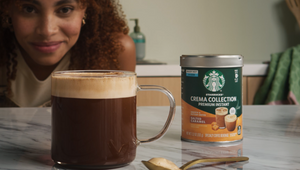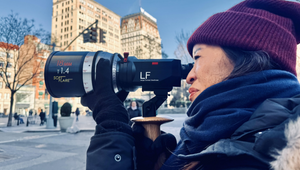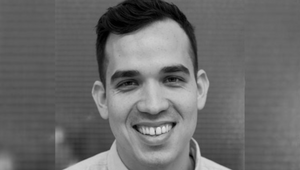
The Directors: Derek Westerlund

Derek Westerlund is an Emmy award-winning director, producer and recent inductee into the Mountain Biking Hall of Fame. With a career spanning 30 years in action sports, Derek’s path has been nothing less than extreme. He has produced and directed heart-pounding sports and action content in over 50 countries. From being the first director and production partner on Red Bull Stratos, AdAge’s #5 ranked Marketing Campaign of the 21st century to taking home a 2020 Sports Emmy Award for Digital Innovation for the Red Bull Rampage, Derek’s production acumen runs deep.
LBB> What elements of a script sets one apart from the other and what sort of scripts get you excited to shoot them?
Derek> I am always drawn toward smart and challenging creative. Thinking beyond the obvious is where I have always excelled as a director. I love shooting stuff in camera that most would revert to VFX.
LBB> How do you approach creating a treatment for a spot?
Derek> I love to bring things to life in hyper detail. I love blowing agencies away on first look. I take pride in this and having creative directors feel like the spot is alive already in the treatment phase. This is a place where AI tools have proven useful – helping to conceptualise some of these more far-fetched ideas and can bring clients closer to the experience and environment we’re going to create on set.
LBB> If the script is for a brand that you're not familiar with/ don’t have a big affinity with or a market you're new to, how important is it for you to do research and understand that strategic and contextual side of the ad? If it’s important to you, how do you do it?
Derek> I do a lot of research as there are just so many brands out there these days. I have been fortunate to work with many of the world's biggest and most recognized brands, but it is always exciting to see new brands break into the marketplace and help them accomplish their goals. A lot of these new brands aspire to be like the big players and I love that challenge. I have worked a ton on brand strategy and campaign development as an EP and director so I like to switch hats and collaborate on the whole brand vision when agencies invite us into that process.
LBB> For you, what is the most important working relationship for a director to have with another person in making an ad? And why?
Derek> For me it is always about the entire team. I never isolate and align myself too strongly with any one person. Of course, I want to be in complete sync with my producer and DP, but I always make a point of taking the entire camera department to dinner on a big shoot. Everyone is a part of the team and I could never do it without them.
LBB> What type of work are you most passionate about - is there a particular genre or subject matter or style you are most drawn to?
Derek> I love athletes and I love action. I really am an action guy through and through. Live action. Hard-to-get shots. Extreme environments. Making the impossible possible. That is my strength.
LBB> What misconception about you or your work do you most often encounter and why is it wrong?
Derek> Well…that is a very loaded question for a person as opinionated as I am …
My biggest peeve with this entire industry is you are only as good as your last spot or you are only good at one thing. I have an incredible sense of humour and an eye for comedic delivery. I would just never get a chance at anything in that realm as my reels don’t show that. Very seldom people take chances, but when they do I think we all get to experience something refreshing and it can take over the cultural conversation. When agencies can cross that line of pushing clients into uncharted territory with talent they trust, more directors would flourish, more incredible talent would be discovered and advertisers can continue to make those historical imprints across generations.
LBB> What’s the craziest problem you’ve come across in the course of a production – and how did you solve it?
Derek> I helped create the space pod filled with Red cameras and POVs that Red Bull took to the stratosphere; seven years later the team shot a human free-falling from the edge of space. It was, at the time, the biggest event in internet history and became one of Ad Age's top 10 campaigns of the 21st Century.
The trials and tribulations to make cameras capture this in a 100-degree temperature variance is mind boggling but it’s a great example that there’s always a solution and a technology to do almost anything one can imagine. You just have to have the audacity to believe it can be done. I thrive on this stuff. I tell every brand and agency. – Please call me with your next outrageous idea. Let’s do it!
LBB> How do you strike the balance between being open/collaborative with the agency and brand client while also protecting the idea?
Derek> I just believe it’s their idea. I am a conduit to make it happen and bring it to life exactly how they see it. If I can up level it and make it better I will always speak my mind on how that can be done.
LBB> What are your thoughts on opening up the production world to a more diverse pool of talent? Are you open to mentoring and apprenticeships on set?
Derek> Absolutely. I owned my own production company for 20 years and have brought up some incredibly talented directors. A couple of them have gone on to become very sought after. I love it. I still try to do this as often as possible because I believe in the incredible talent out there that will never get a chance unless you help provide those opportunities.
LBB> Do you feel the pandemic influenced the way you work in the longer term? Have you picked up new habits that you feel will stick around?
Derek> During the early days of the pandemic I was lucky enough to work with Lexus and Team One on an incredible remote directed spot. It could have only been done at that exact moment in time. Every night we regrouped on Zoom, talked about what we were able to accomplish that day, the morale and energy was awesome as we were defining the level of production at that time. It showed me that all the politics of working on set with client and agency really can be bi-passed if you bring the right attitude to your work. Again, there is an age-old stigma and approach to these three-way relationships – production company, agency and client. I love when you can break these and have fun together, hang out and create an experience.
LBB> Your work is now presented in so many different formats - to what extent do you keep each in mind while you're working (and, equally, to what degree is it possible to do so)?
Derek> I don’t really pay attention to it. If you spend a bit more time in post and pay attention to detail it will all be great. The social media framing takeover is merely a limitation set by people that don't know any better, often by people that don't really understand the power of the tools we have at our fingertips. The idea you need to frame for 9x16 or whatever the 100 assets coming out of the spot will be is kind of over blown, in my opinion. I have watched DPs be dumbfounded by turning cameras on their side and trying so hard to re-train themselves against everything they have spent a lifetime to be great at. It’s crazy that people think there is that much of a difference in it all.
LBB> What’s your relationship with new technology and, if at all, how do you incorporate future-facing tech into your work?
Derek> I have always prided myself on being on the forefront. These days it’s AI, previously it was 360, immersive, VR – you name it. I have done it all. I am always keeping my fingers on the pulse. Often that stuff is hard to present to agencies because it lives on certain platforms and does not present as spots so to speak. It is important to understand it at the highest level, but it all has a time and a place.
LBB> Which pieces of work do you feel really show off what you do best – and why?
Derek> Here are a few commercials I’ve directed that highlight brands that equip adventure-seekers for new worlds and experiences.















